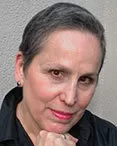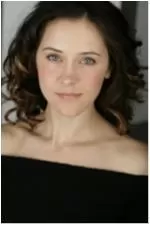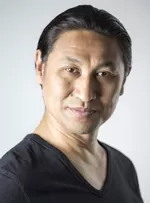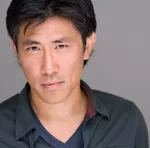By Sarah Ruhl
By Sarah Ruhl | Directed by Jessica Thebus
An American woman and her Tibetan husband make a life together with their three-year-old son. When a monk announces that the couple’s son is the reincarnation of his deceased teacher, a series of heart wrenching events lead the family from the comfort of their lives in the US to the mountains of Dharmsala. At its core, is the story of a mother’s struggle to come to terms with her son’s special nature, and how she comes to let him go. Ultimately, this gentle meditation on faith and love speaks to anyone who has been a mother, or a mother’s child.
Interspersed with Tibetan Buddhist ritual and dance and featuring renowned Berkeley-based Tibetan artist Tsering Dorjee Bawa, Marin Theatre Company’s production of is the west coast premiere of two-time Pulitzer Prize nominee and MacArthur “Genius” grant recipient Sarah Ruhl’s latest and perhaps most personal contribution to the American theatre.
LENGTH OF SHOW: One hour and forty minutes, with one intermission.
TICKET PRICES: $25 - $58. All prices subject to change without notice.
















“One of the more moving theatrical experiences I’ve had for a while.”
Marin Theatre Co. meditates on Ruhl’s poignant Boy
The plays of Sarah Ruhl are mightily appealing in their intelligence, sensitivity, beauty and depth. From Dead Man’s Cell Phone to Eurydice (now at Shotgun Players) to In the Next Room, or the vibrator play, Ruhl makes the ordinary extraordinary and gives poetic voice to thoughtful, troubled lives that have a great deal to offer.
At the heart of the story is a little boy, Tenzin, represented by a bunraku-style puppet operated by Tsering Dorjee (Bawa) (who also provides the choreography), who provides the voice, and Melvin Badiola and Jed Parsario, who give astonishing expression to his body (the fantastic puppet is by Jesse Mooney-Bullock). There wasn’t one moment in this two-hour play when I didn’t feel the reality of the child, even though he was an obvious theatrical contrivance. That has a lot to do with the artistry of the puppeteers, Ruhl’s script and Albright’s strong central performance.
Director Jessica Thebus pulls nuanced, naturalistic performances from her actors, and that keeps the play grounded in reality, even when Ruhl stretches credibility in Act 2. We experience this story from the perspective of Mother, and Albright is a powerful focal point as we see her using her considerable intellectual abilities (she’s a literature professor, adjunct as she’d point out) to try and open up her spirituality and to the hardest thing a parent has to do: let go of a child. As she points out, “The cruel animal fact of motherhood is bigger than any idea.”
The play and this stunning production never lose sight of that, and The Oldest Boy turns out to be one of the more moving theatrical experiences I’ve had for a while.
THE OLDEST BOY is a mystical journey at Marin Theatre
It is apparent that Bay Area theatre groups have a love affair with Sarah Ruhl and it seems that each season one or more of her plays is produced locally as well as at other venues on the West Coast. The most recent local production is the exceptional staging of her feminist take on the myth of Eurydice at Shotgun players. Two of her plays (In the Next room, or the vibrator play and The Clean House) were Pulitzer Prize finalists. Both of those plays, with the exception of the strange epilog for Next Room are written in classical linear Aristotelian format. However Ruhl constantly deviates from set formats challenging the intellect of her audiences. She does that again with the visually stunning West Coast premiere of The Oldest Boy by the adventurous Marin Theatre Company. This time she challenges us to believe or suspend belief in the Buddhist concept of reincarnation.
The play is non-linear and uses a puppet to carry many of her thoughts. In doing so, she is able to depersonalize controversial concepts at the same time creating questions rather than answers. The mysticism starts early with a woman identified only as “Mother” (Christine Albright) is meditating facing the audience and abruptly turns away suggesting that the fourth wall has been broken. She is married to a Tibetan immigrant, again only noted as “Father” (Kurt Uy), and when two Buddhist monks appear at the door the assumption is they are there to see her husband. In actuality they are there to see her almost three year old son who may be a reincarnated lama.
Where you may have questions concerning the play’s ability to present Buddhist beliefs there are only accolades for the entire handsome production, including the set (Collette Pollard), costuming (Fumiko Bielefeldt), choreography (Tsering Dorjee) and Jessica Thebus’ stylized direction. Christine Albright makes you feel Mother’s tumoil and is ably supported by Kurt Uy as Father. The quiet under-playing of the Monks (Wayne Lee and Jinn S. Kim) add verisimilitude to the evening and the puppeteers/dancers (Melvign Badiola and Jed Parsario) earn extra accolades.
Marin Theatre’s production is a visual treat earning a strong four star rating.
“A lovely, touching and sometimes funny tale that explores many forms of love and connection.”
What if your child is a reincarnated lama?
Even if you have as much trouble swallowing the notion of reincarnation as many of us (this critic, anyway) do, the remarkable Sarah Ruhl embeds it so naturally into the stagecraft of “The Oldest Boy” that it goes down as easily as theater’s standard willing suspension of disbelief. Ruhl has made us believe stranger things (an elevator to the Underworld, for example) in the past. Besides, what’s at issue in the magnetic West Coast premiere that opened Tuesday, Sept. 15, at Marin Theatre Company isn’t that belief but one young mother’s achingly real struggle between holding on to her young son and letting him go.
It’s attachment parenting, in the modern vernacular, versus the ancient Buddhist tenet of relinquishing earthly attachments, that forms the central conflict in “Boy,” eloquently embodied in the deeply felt nuances of Christine Albright’s luminous performance as Mother and just as convincingly echoed by a solid Kurt Uy as the American woman’s Tibetan-born husband, Father. Ruhl, director Jessica Thebus and the very capable cast even make us comfortable with the idea that a lama could walk into your home and tell you your child belongs to a religious center on the other side of the world.
Sarah Ruhl’s mama/lama drama at MTC touches the heart
Most parents would like to believe their child is special, but maybe not so special that the child needs to be taken away because he or she is needed elsewhere. That’s the problem in Sarah Ruhl’s play “The Oldest Boy,” in which an American mother has to contend with the revelation that her 3-year-old son may be a reincarnated Tibetan lama.
Marin Theatre Company’s West Coast premiere of this mama/lama drama arrives amid a season of Ruhl plays all around the Bay Area. Berkeley’s Shotgun Players is performing an excellent production of “Eurydice,” her dark and dreamlike father-daughter love story in the afterlife. In November, San Francisco Playhouse will present her romantic farce “Stage Kiss,” and next spring she returns to her longtime local artistic home Berkeley Repertory Theatre for the West Coast premiere of “For Peter Pan on Her 70th Birthday.”
Opening MTC’s 49th season, “The Oldest Boy” is the company’s first Ruhl play, and it amply demonstrates why the Bay Area is so taken with the Brooklyn-based playwright’s work. It’s a lovely, touching and sometimes funny tale that explores many forms of love and connection.
"Magnetic … compelling … mesmerizing”
Powerhouse MTC play is spiritual, mystical, soft
Sarah Ruhl is like an artistic octopus, with each tentacle separately reaching into new and unchartered waters.
And she seems to evolve exponentially with each play she writes.
Since she’s barely snapped the 40-year mark, I can’t imagine how good she’ll be at 60.
Each of her dramas utilizes a different voice and unconventional characters unlikely to be sitting in my living room or yours.
But she repeatedly sprinkles in humor to leaven the heaviness of whatever subject matter she’s tackling.